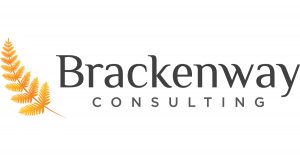Arcadis recently released their annual Global Construction Disputes Report tellingly titled “Avoiding the same pitfalls”.
The report contains some interesting statistics concerning construction disputes globally but of particular interest was their ranking of the most common causes of construction dispute:
- Failure to properly administer the contract
It still amazes me how often Clients and Contractors alike leave the contract in the drawer once it is signed. The contract represents the rules of the game that the parties signed up to play. If you don’t read the rules you may miss out on $200 for passing go. - Poorly drafted or incomplete and unsubstantiated claim
Contractors, almost universally, believe they are the most honest and trustworthy people ever to walk the earth and are prone to displays of extreme indignation and horror when their $10M global claim supported by two bits of paper, a fancy graph and a cost statement is not paid in full. The importance of clearly explaining contractual entitlement and supporting claims with detailed records cannot be overstated. - A party to a contract failing to understand and / or comply with its contractual obligation
Contracts can be very complicated documents that require a degree of skill to interpret. Unfortunately this skill seems to be a declining commodity in the current market as evidenced by the high ranking for this type of dispute. There are simple steps that can be taken to address this problem such as having ‘rights and obligations’ summaries prepared to make it easier for the project teams to understand the contract but it is also incumbent on Clients and their advisors to simplify contracts as they are equally at risk from a failure to properly administer them. - Errors and / or omissions in the contract document
This is such a common issue that many contracts contain provisions to deal with situations such as where work is detailed on a drawing or in a specification but there is no corresponding pay item in the Bill of Quantities (The contractor is usually deemed to have allowed for undertaking the work). A better solution would be for Clients to spend more time ensuring that works are accurately described in the contract documents rather than placing the onus on the contractor to identify errors during the tender process. - Incomplete design information or employer requirements (D&C contracts)
Design and Construct contracts are often viewed as a way to pass on all design development risk to the Contractor but for this to happen the Client must still adequately detail their expectations e.g through a performance specification and then step back from the design process. Unfortunately, this rarely happens. Clients think they have a right to be stay actively involved in the design development process without any consequences and the Contractor interprets any comment as an instruction to change the design.
In terms of resolving disputes once they arise, Roy Cooper (Arcadis Head of Contract Solutions North America) notes:
Our industry contains the best problem solvers in the world. But there often seems to be a lack of ability or willingness of the project participants to compromise and resolve disputes at the earliest and most inexpensive stage possible.
Parties should resolve issues early in order to:
- Maintain cash flow within the supply chain;
- Maintain party relationships;
- Keep the respective delivery teams focused on delivering the project; and
- Avoid a cumulative effect of minor issues being aggregated into larger disputes.
Brackenway Consulting wholeheartedly agrees with this sentiment and advice. Just last year I promoted the benefits of a metaphorical privileged pint as a means of resolving disputes before they escalate.
It is disappointing to note that since the Privileged Pint blog was posted, the planned release of AS 11000 has been postponed indefinitely due a failure to reach consensus on provisions that were largely intended to reduce disputes / resolve them earlier.
Brackenway Consulting is committed to helping its Clients better understand contracts, administer them fairly and appropriately and to expedite amicable resolution of disputes.
Please contact us today to discuss how we can help you.
Jon Davies
Principal of Brackenway Consulting



